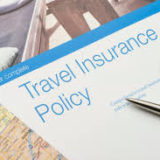Manulife ordered to pay disability benefits to brain injured man.
On April 19, 2018, Ontario’s highest court ordered Manulife to pay long-term disability benefits to a man who suffered a traumatic brain injury and a severe back injury during a company-sponsored event on April 16, 2005. In MacIvor v. Pitney Bowes Inc., [2018] O.J. No. 2105, 2018 ONCA 381, the Ontario Court of Appeal (“ONCA”), reversed a trial decision and found for Lenard MacIvor. Mr. MacIvor suffered a traumatic brain injury and a significant musculoskeletal injury during a company-sponsored event in Costa Rica. Mr. MacIvor, who worked at Pitney Bowes at the...
read moreICBC punished with costs for “improper act”.
On February 20, 2018, the BC Supreme Court assessed costs against ICBC in Garayt v. Deneumoustier, 2018 BCSC 295, for failing to abide by “very clear case law”. By way of background, when a lawyer in British Columbia receives trust funds a $15 “trust administration fee” must be assessed. For a description of the fee program, click here. This is a mandatory assessment. So, when a plaintiff retains a lawyer to resolve a dispute with ICBC this fee needs to be paid. If the plaintiff is successful, ICBC ought to indemnify this fee as a...
read moreTravel insurer ordered to pay for emergency surgery.
On July 28, 2017, the Supreme Court of BC ordered an insurance company to pay for a British Columbia man’s emergency heart surgery while travelling. The court held, in Fletcher v. Royal & Sun Alliance Insurance Company of Canada, 2017 BCSC 1330, that the medical expenses Paul Fletcher incurred while outside of Canada were not excluded by the policy. The court made this finding after noting that Mr. Fletcher was advised by his treating physicians that: a) his condition was stable; b) he was safe to travel; and c) further testing could wait until after his travels....
read moreSurveillance prohibited during court-ordered medical examination.
On June 28, 2017, a judge of the BC Supreme Court prohibited a defendant from conducting video surveillance of a plaintiff who is compelled to attend a defence medical examination in a personal injury lawsuit. Rule 7-6(1) of the Supreme Court Civil Rules allows compulsory examinations where the physical or mental condition of a person is in issue in an action. For many years defendants, or their insurers, have used these examinations as opportunities to conduct covert surveillance of plaintiffs in personal injury and disability lawsuits. This practice was considered by...
read moreExpert evidence not needed if common sense prevails.
On June 23, 2017, the BC Supremc Court considered the use, and overuse, of expert evidence in personal injury litigation. Truax v. Hyrb, 2017 BCSC 1052, was an action arising out of a motor vehicle accident in which fault was at issue. The defendant brought an application seeking a dismissal of the lawsuit and argued that in failing to adduce expert engineering evidence an adverse inference should be drawn against the plaintiff. In rejecting this argument, Mr. Justice Dley provided the following comments about the role of expert evidence:...
read moreManulife pays 69 MILLION DOLLARS to shut down class action before trial.
After almost eight years of litigation, a securities class action against Canada’s largest life insurance company settled for $69 million. In Ironworkers Ontario Pension Fund v Manulife Financial, 2017 ONSC 2669, the Ontario court approved the payment of honoraria to the representative plaintiffs, the payment of class counsel contingency-based legal fees, and the payment of a preliminary commission to a third-party litigation funder. Background Manulife Financial Corporation (“MFC”) is the largest life insurance company in Canada. In early 2004, MFC added several new...
read more









